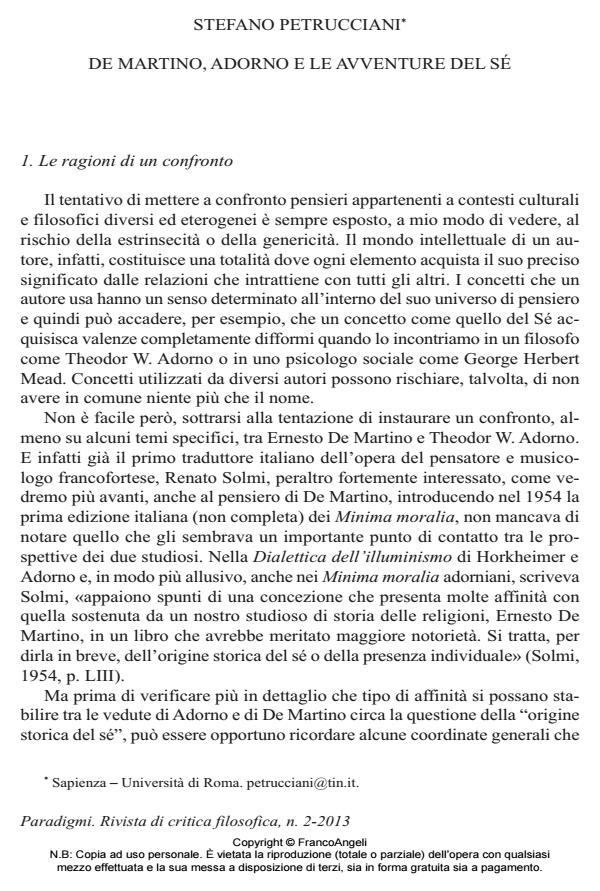De Martino, Adorno, and the Adventures of the Self
Journal title PARADIGMI
Author/s Stefano Petrucciani
Publishing Year 2013 Issue 2013/2
Language Italian Pages 13 P. 125-137 File size 109 KB
DOI 10.3280/PARA2013-002010
DOI is like a bar code for intellectual property: to have more infomation
click here
Below, you can see the article first page
If you want to buy this article in PDF format, you can do it, following the instructions to buy download credits

FrancoAngeli is member of Publishers International Linking Association, Inc (PILA), a not-for-profit association which run the CrossRef service enabling links to and from online scholarly content.
This article draws a comparison between Ernesto De Martino’s and Theodor W. Adorno’s theories, focusing especially on two fundamental writings: De Martino’s The World of Magic (1948), and The Dialectics of Enlightenment (1947) written by Adorno in collaboration with Max Horkheimer. Both texts study the process of constitution of the autonomous subject, capable of controlling his own instincts and of dominating the external nature. The focal point of the article is, however, that both authors also reflect on the fact that the autonomous and rational subjectivity is not an irrevocable achievement: on the contrary, it is constantly exposed to the risk of a return into barbarism and of regression, as the totalitarian experience of the last century has shown.
Keywords: Adorno, De Martino, magic, subjectivity, Self.
Stefano Petrucciani, De Martino, Adorno e le avventure del Sé in "PARADIGMI" 2/2013, pp 125-137, DOI: 10.3280/PARA2013-002010